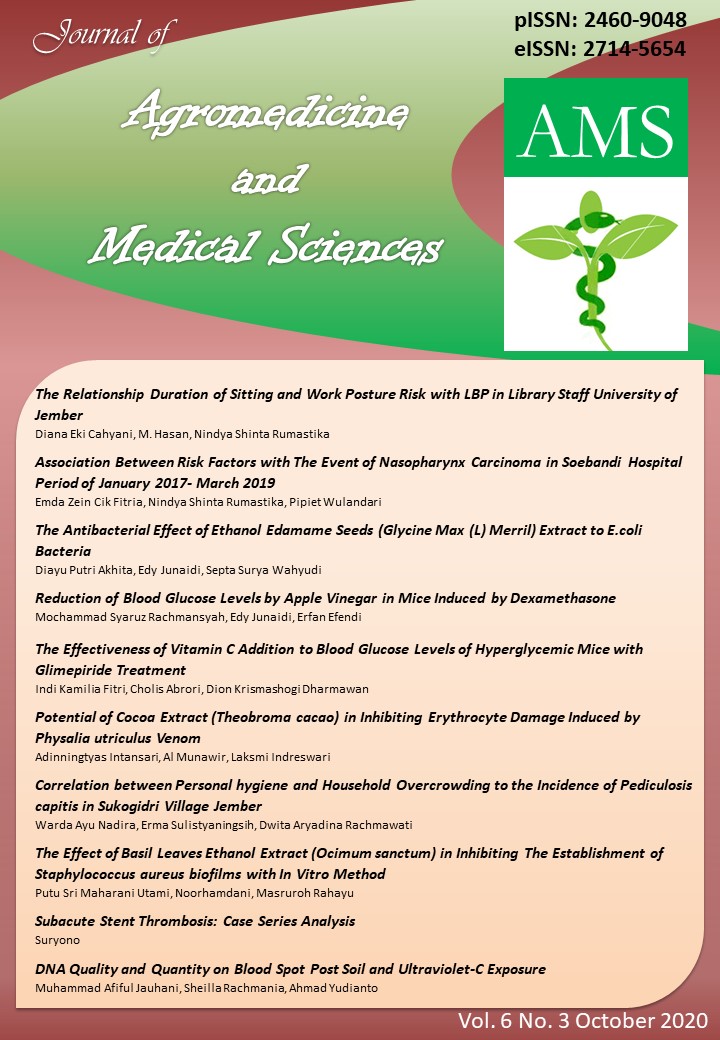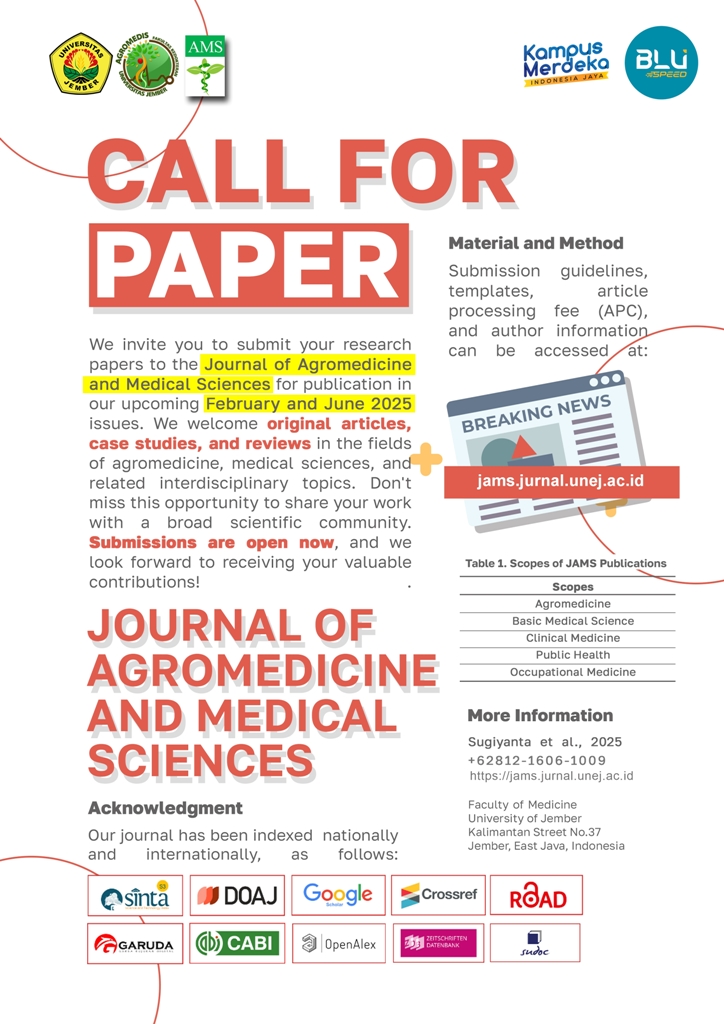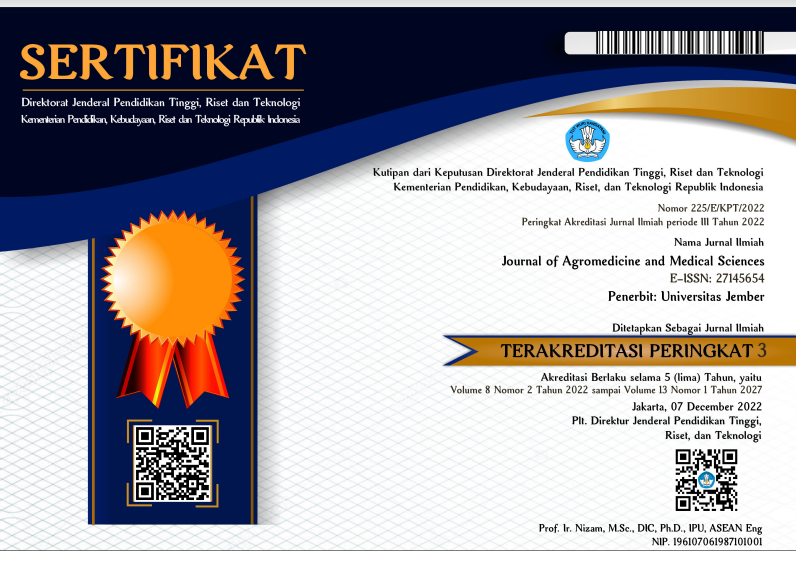The Antibacterial Effect of Ethanol Edamame Seeds (Glycine Max (L) Merril) Extract to E.coli Bacteria
DOI:
https://doi.org/10.19184/ams.v6i3.11120Abstract
Abstract
Infectious diseases can occur in all parts of the body. One of the causes infection in humans is Eschericiae coli bacteria. Eschericiae coli is a rod-shaped bacteria, a gram negative bacteria, facultative aerobics and classified family member of Enterobacteriaceae from the Gammaproteobacteria class. Along the times, E.coli bacteria have resistent to some antibiotics. So we need a new alternative. There is a antibacterial substance in the isoflavon group contained in edamame. Genistein is a main isoflavon in edamame that have antiinflammation, antibacterial, and antioxidant effects. The purpose of this study was to determine is there any antibacterial effects in ethanol edamame seeds extract to E.coli bacteria. This study used a true experimental research design in vitro with a post test only control group design. The average diameter results of the inhibition zone were analyzed using the Kruskal-Wallis method and obtained p = 0.001 which means there are significant differences in at least two groups. After that, the Mann Whitney post hoc test was conducted and a significant difference was found in the positive and negative control groups for all groups but there was no difference in the treatment group, both groups K1, K2 and K3 for all groups.
Keywords : Edamame, Antibacterial, E.coli























